Learn more about some of the key participants in the Synod of Dordt.
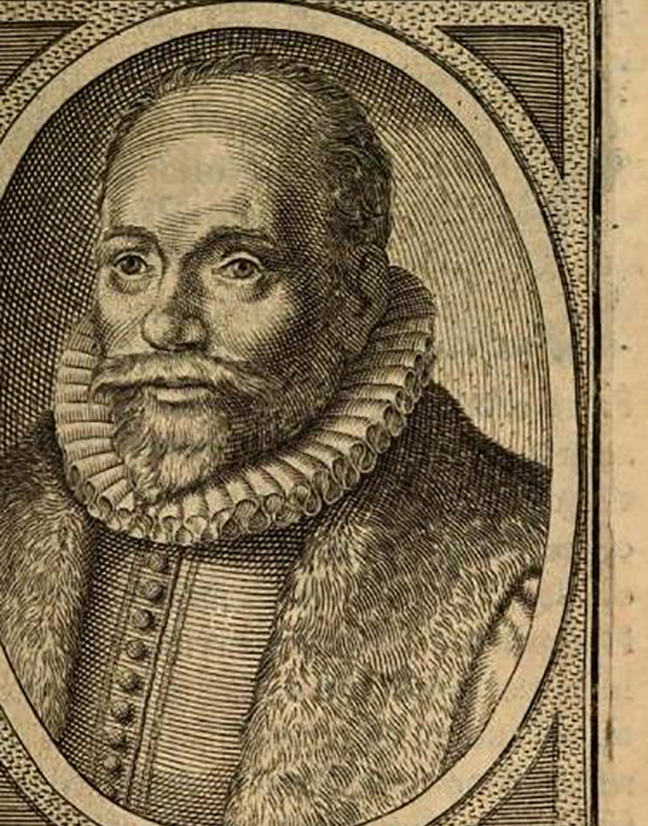 Arminius, Jacobus (1560-1609)
Arminius, Jacobus (1560-1609)

Born in Oudewater (province of Utrecht), he studied at the University of Leiden, at the University of Basel, and at the Genevan Academy. He became a pastor in Amsterdam in 1587 and joined the faculty of theology at the University of Leiden as professor in 1603. Both as a pastor and a professor, Arminius increasingly made public his critique of hardline Calvinist predestinarian theology. In oral debates and in print, his opponents accused him of reviving the ancient Pelagian heresy that taught that human beings had free will and could cooperate with God in working towards their salvation. Arminius rejected these charges and condemned Pelagian views. His main opponent at the University of Leiden was his colleague Franciscus Gomarus. The two men clashed repeatedly in person and in writing up to Arminius’ death in 1609. His followers and supporters later became known as Arminians (not to be confused with Armenians, who are people from Armenia in western Asia)
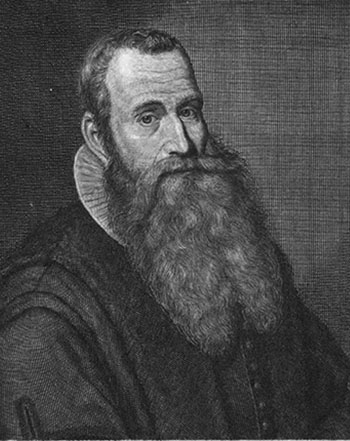 Bogerman, Johannes (1576-1637)
Bogerman, Johannes (1576-1637)

Born near Emden in northern Germany, Bogerman studied in Heidelberg, Geneva, and Zurich, with shorter stays in Lausanne, Oxford, and Cambridge. He became a pastor and served congregations in Sneek, Enkhuizen, and Leeuwarden. He chaired three provincial church synods in 1605, 1610, and 1615. His expertise in church government and his orthodox Calvinist perspective led him to be asked to preside at the Synod of Dordt. He contributed to the translation of the Old Testament into Dutch for the Statenbijbel. In 1636, he became professor of theology at the University of Franeker. He died there in the following year.
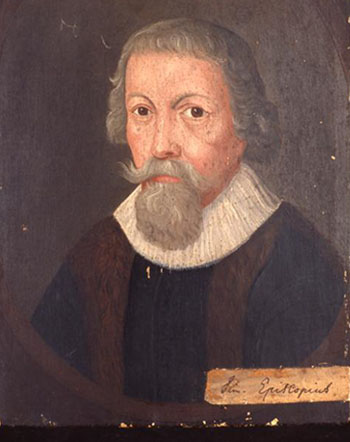 Episcopius, Simon (1583-1643)
Episcopius, Simon (1583-1643)

Born in Amsterdam, he studied at the universities of Leiden and Franeker. He became a pastor in 1610 near Rotterdam and was appointed professor of theology at the University of Leiden in 1612. He attended the Synod of Dordt as the chief spokesman for the thirteen Remonstrant clergy in attendance, but the Synod refused to allow him to present the Remonstrant perspective at the gathering. By the end of the Synod, Episcopius and his Remonstrant colleagues stood condemned, were dismissed from their posts, and were forced into exile. Episcopius went to France, but returned to the Netherlands in 1626 following the death of Maurice of Nassau. He became the pastor of the Remonstrant congregation in Amsterdam and the principal of the Remonstrant college in the city.
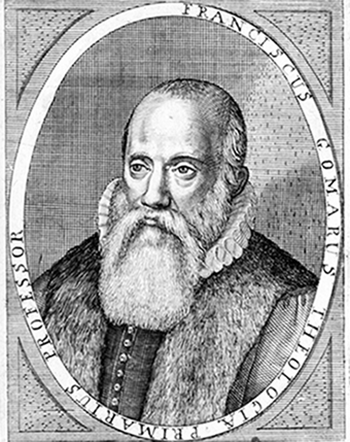 Gomarus, Franciscus (1563-1641)
Gomarus, Franciscus (1563-1641)

Born in Bruges in the southern Netherlands, he studied in Strasbourg, Neustadt, Oxford, Cambridge, and Heidelberg. He began his career as pastor of a Dutch Reformed exile church in Frankfurt in 1587. In 1593 he became professor of theology at the University of Leiden. Although he initially approved the appointment of Arminius as his colleague, he quickly opposed what he saw as Arminius’ unorthodox teachings on election and predestination. Gomarus gained supporters for his side of the debate, later known as Gomarists. He left the university in 1611 after one of Arminius’s supporters was appointed to the faculty. Gomarus later taught theology and Hebrew in Middelburg, Saumur, and Groningen. He attended the Synod of Dordt as an academic delegate representing the states of Groningen and Ommelanden, and later contributed to the Statenbijbel.
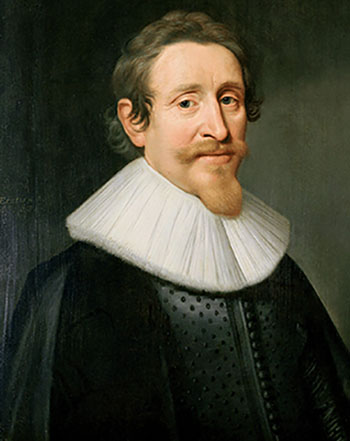 Grotius, Hugo (1583-1645)
Grotius, Hugo (1583-1645)

Born in Delft, he studied at the University of Leiden, where he enrolled at age eleven. He became widely known as a legal scholar and expert, drafting an important early treatise on the concept of international waters and the freedom of the seas. He was closely associated with Johan van Oldenbarnevelt and held various high-level political positions. He supported the Remonstrant cause and wrote a defense of the government’s right to appoint professors to university positions without input from the Reformed church. In 1614 he produced an edict on religious toleration at the request of the States of Holland, calling for moderation and toleration among the pastors. His main opponent on these issues was the counter-remonstrant pastor Sibbrandus Lubbertus. In August 1618, Grotius was arrested alongside Oldenbarnevelt. Grotius was condemned to life imprisonment, but managed to escape prison in 1621 by concealing himself in a chest of books. He fled to France, where he wrote his most famous book, the three-volume De Jure belli ac pacis (on the law of war and peace). He later returned from exile and taught in the Remonstrant seminary in Amsterdam.
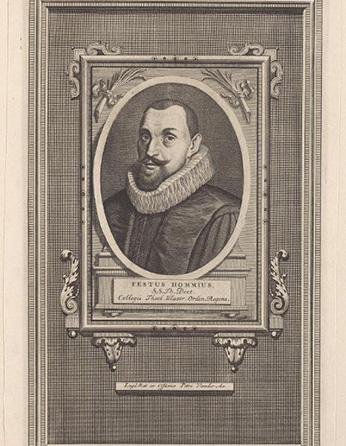 Hommius, Festus (1576-1642)
Hommius, Festus (1576-1642)

Born in Jelsum in Friesland, he studied at the universities of Franeker and Leiden. He began serving as a pastor in 1597. A strong Counter-Remonstrant, he opposed both Vorstius and Episcopius’s nominations as professors of theology at the University of Leiden. He served as one of the secretaries at the Synod of Dordt. He played an important role in the publication of the Dutch Bible translation known as the Statenvertaling, as he took over the translation of the New Testament from the deceased Peter Cornelius. He later served as one of the governors of the University of Leiden.
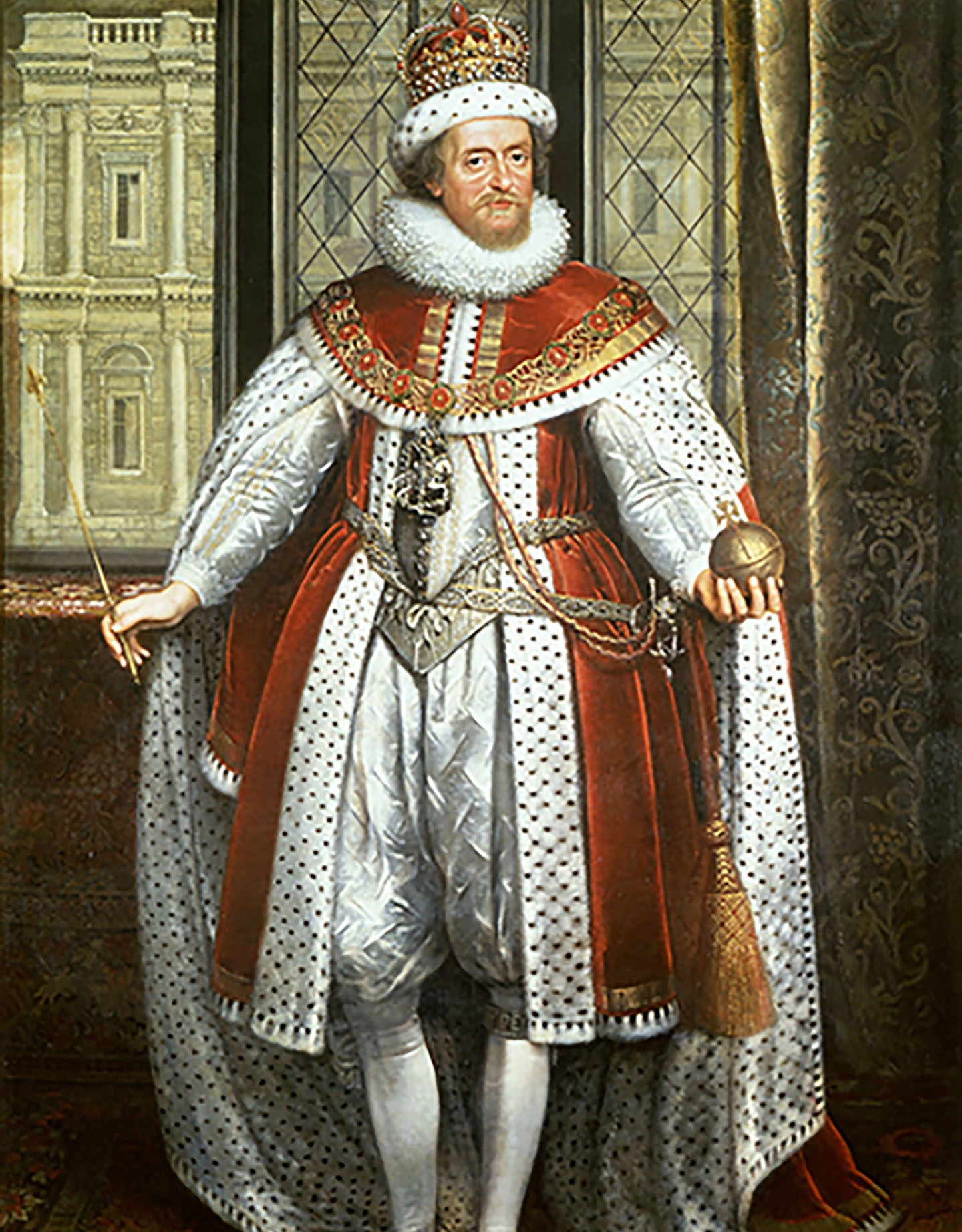 James I (1566-1625)
James I (1566-1625)

King of Scotland beginning in 1627, and of England beginning in 1603 following the death of Queen Elizabeth I, the last of the Tudor dynasty. James was brought up as a Presbyterian in Scotland and had an ongoing interest in theology and in the state of the Reformed church across Europe. Huguenot leaders from France petitioned the king to put his authority behind their scheme to bring together Reformed church leaders from across Europe to build the cause of Reformed unity. The States-General that issued the invitations to the Synod of Dordt sent their letter of invitation directly to James in the summer of 1618. The king selected the four English and one Scottish delegate who attended the Synod, and personally met with the English delegates before they set off for Dordrecht. The delegates and the English ambassador to the Dutch Republic, Dudley Carleton, kept the king abreast of developments, so that even though he was not in attendance, the king played a determining role both in the set-up and the progress of the gathering.
.jpg?language_id=1) Lubbertus, Sibrandus (1555-1625)
Lubbertus, Sibrandus (1555-1625)
.jpg?language_id=1)
Born in lower Saxony, he studied at Wittenberg, Geneva, Neustadt, Marburg, and Heidelberg, obtaining his doctorate in theology from Heidelberg in 1587. He began teaching theology at the University of Franeker in 1585, and remained there as professor of theology for forty years. He was a hard-line orthodox Calvinist, writing long polemical works against his theological opponents, including the jurist Hugo Grotius and Leiden theology professor Conrad Vorstius. Lubbertus served as one of the academic delegates at the Synod of Dordt.
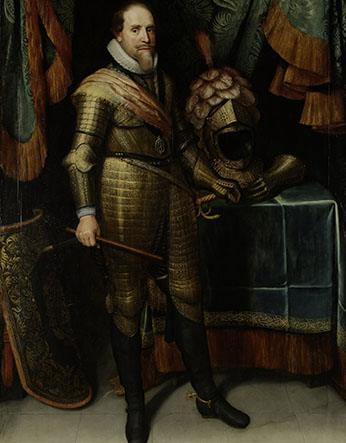 Nassau, Maurice of (1567-1625)
Nassau, Maurice of (1567-1625)

The son of William of Orange, who led the Dutch push for independence from Spain, Maurice succeeded his father as stadtholder (the highest executive official) in five of the seven Dutch provinces by 1590. Maurice proved to be a highly-effective military commander, continuing the Dutch pressure against the Spanish and becoming famous as a military strategist. His earlier support for Johan van Oldenbarnevelt slipped as they disagreed over the twelve-year truce Oldenbarnevelt negotiated with Spain. Maurice allied himself with the Counter-Remonstrants and engineered Oldenbarnevelt’s downfall in 1618.
,_by_workshop_of_Michiel_Jansz_van_Mierevelt.jpg?language_id=1) van Oldenbarnevelt, Johan (1547-1619)
van Oldenbarnevelt, Johan (1547-1619)
,_by_workshop_of_Michiel_Jansz_van_Mierevelt.jpg?language_id=1)
Born in Amersfoort in the province of Utrecht, he went to Louvain, Bourges, Heidelberg, and Padua to study law. He entered government service first as a legal advisor to the city of Rotterdam, and then as land’s advocate for the States of Holland, holding a role similar to that of a prime minister today. Although early on in his career he had the strong support of Maurice of Nassau, the two men increasingly diverged as tensions increased in the Dutch provinces over the divide between Remonstrants and Counter-Remonstrants, but also due to social and economic issues. When Oldenbarnevelt and the States of Holland took actions to strengthen Holland’s provincial authority over against church bodies or any other court, the other states and Maurice took these measures as a sign that Holland wanted to gain control at the expense of the other provinces. Oldenbarnevelt was arrested in August 1618, and charged with treason. After a show trial, he was condemned and executed in May 1619, shortly before the end of the Synod of Dordt.
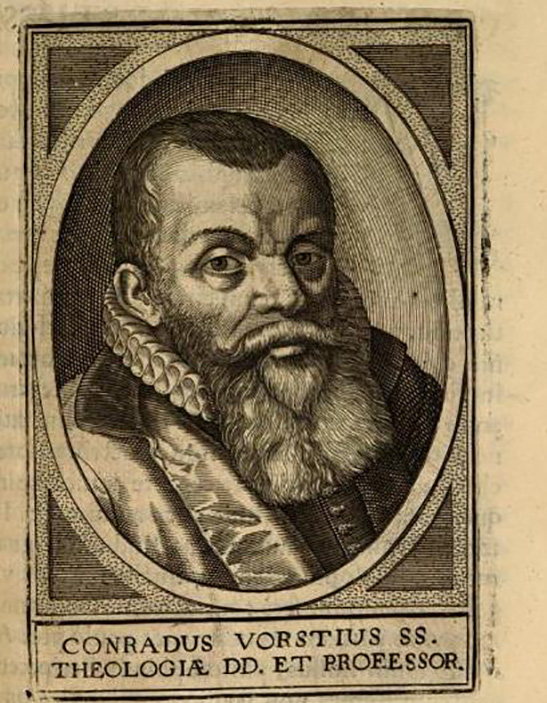 Vorstius, Conrad (1569-1622)
Vorstius, Conrad (1569-1622)

Born in Cologne in a Roman Catholic family, Vorstius converted to the Reformed faith and studied in Herborn, Heidelberg, Basel, and Geneva. He taught theology in the academy at Steinfurt near Münster from 1596 to 1611, when he became the successor to Jacob Arminius as professor of theology at the University of Leiden. His appointment became a flash point for controversy due to persistent accusations from orthodox Calvinists including Sibrandus Lubbertus, Franciscus Gomarus and even James I of England that Vorstius held heterodox views on fundamental Christian doctrines. His detractors accused him of Socinianism (an anti-Trinitarian stance). Vorstius’ unorthodox theology made it difficult for his Arminian supporters to defend his views, so Hugo Grotius and others concentrated instead on defending the government’s fundamental right to appoint professors to university chairs without interference from the church. As a result of the controversy, Vorstius was dismissed from his post in 1612, and in 1619 was banished from the Dutch Republic. At the time of his death in 1622 he was living in exile in the German territory of Holstein.
,_by_workshop_of_Michiel_Jansz_van_Mierevelt2.jpg?language_id=1) Wtenbogaert, Johannes (1557-1644)
Wtenbogaert, Johannes (1557-1644)
,_by_workshop_of_Michiel_Jansz_van_Mierevelt2.jpg?language_id=1)
Born in Utrecht into a Roman Catholic family, he broke with Catholicism in 1578 and went to Geneva to study theology beginning in 1580. He served as a Reformed pastor in Utrecht and in The Hague, and as court preacher and military chaplain to Maurice of Nassau. He became the leader of the Remonstrants following the death of Arminius. In 1618, following the arrests of Oldenbarnevelt and Grotius, Wtenbogaert fled to Antwerp in the Spanish Netherlands. In 1619, the States General banished him from Dutch territory. He went into exile to France, though he returned in 1626, following the death of Maurice of Nassau. From then on until his death in 1644, Wtenbogaert served as a Remonstrant pastor in The Hague.
